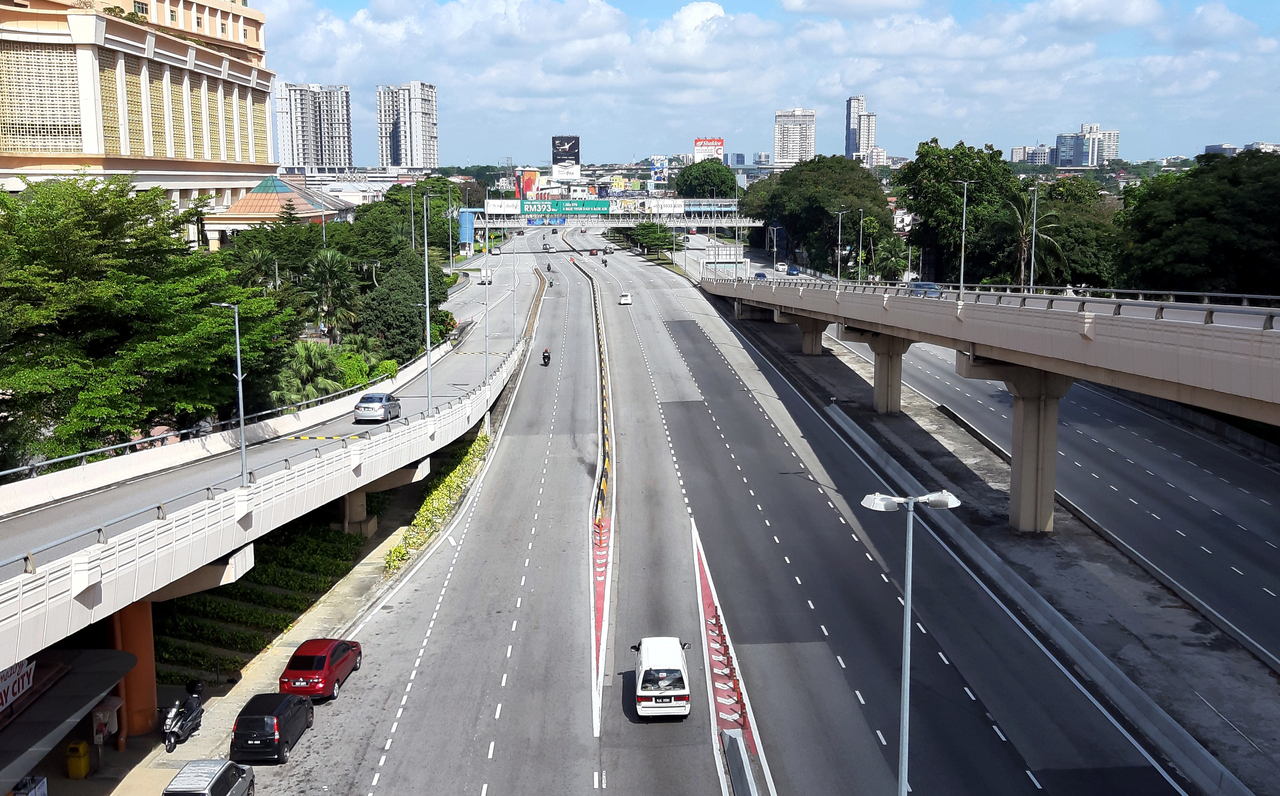Malaysia to extend Covid-19 lockdown for two weeks until June 28
Sign up now: Get insights on the biggest stories in Malaysia

New infections are still averaging 6,871 daily.
PHOTO: THE STAR/ASIA NEWS NETWORK
KUALA LUMPUR - Malaysia will extend its lockdown by another two weeks to June 28, as new Covid-19 infections are still averaging 6,871 daily.
Senior Minister for Security Ismail Sabri Yaakob said on Friday (June 11) that the National Security Council made the decision on the Health Ministry's recommendation.
"The decision was taken after taking into account daily cases are still over 5,000," he said in a statement.
Datuk Seri Ismail Sabri added that regulations such as bans on inter-district travel, social activities and cuts to workplace staff capacity would continue from the existing lockdown that began on June 1 and was set to expire next Monday.
"I hope there is no more confusion on the enforcement of standard operating procedures (SOP). I don't want the public to be affected by misinterpretation of the SOPs by the authorities," he said.
The lockdown, which allows only 17 economic sectors to operate, was imposed after a looser movement control order (MCO) last month failed to curb Malaysia's worst coronavirus wave, with both public and private healthcare resources being overrun by a record number of active cases.
Instead, May has been the deadliest month so far, logging more than a third of the 3,768 fatalities recorded so far.
The Health Ministry reported 6,849 new cases on Friday, the highest this week, bringing the all-time total to 646,411, with a record 912 currently warded in intensive care units.
Malaysia's lockdown, dubbed a full MCO (FMCO), would have ended its first phase next Monday had the Health Ministry's risk assessment - based on infection rates and hospital capacities - deem that the restrictions were successful in reducing the number of infections.
The Health Ministry said on Wednesday that the rate of transmission had dipped just below 1.0 to 0.96, indicating that the number of new patients daily was decreasing slowly.
Once Malaysia ends the FMCO, a second phase lasting four weeks will follow with more economic sectors that do not involve mass gatherings allowed.
Should the situation continue to improve, Malaysia will see a further easing, similar to May's MCO, where most economic activities subject to SOPs and health protocols are allowed while social activities remain banned.
However, Malaysia's long-term exit strategy from MCO restrictions largely revolves around achieving herd immunity before the end of the year.
After a slow start, the national Covid-19 immunisation programme has steadily increased the rate of doses administered daily, with 157,949 jabbed on Thursday. Over 2.8 million people, or nearly 12 per cent of the adult population, have had at least one dose.
"Vaccination has picked up the pace... and it will increase to between 200,000 and 250,000 in July and then hit 300,000 to 400,000 daily," said Prime Minister Muhyiddin Yassin on Friday.
Malaysia needs to dispense about 200,000 doses daily to inoculate a targeted 80 per cent by the end of the year.
The premier called on the public to register for their vaccines, with 13 million, or about 54 per cent of eligible residents, indicating their interest so far.


